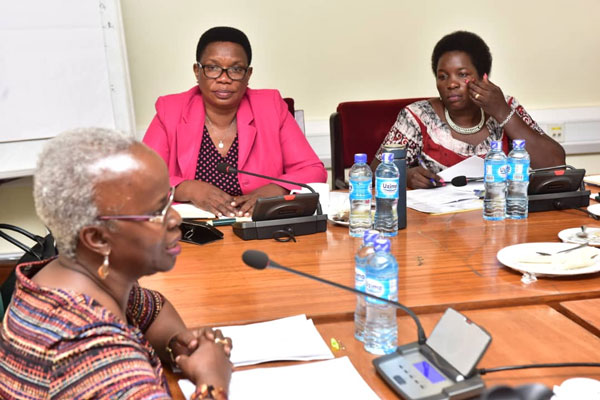
Kampala, Uganda | THE INDEPENDENT | The Veterinary Practitioners Bill, 2023, currently under scrutiny before Parliament’s Committee on Agriculture, Animal Industry, and Fisheries, has garnered mixed views from experts. The bill aims to replace the Veterinary Surgeons Act, Cap. 277, which has been in effect since 1958. If passed into law, the bill will regulate veterinary practices, including the training, registration, and licensing of veterinary professionals.
The Uganda Veterinary Council (UVC) will be entrusted with regulatory powers to issue licenses and enforce professionalism to eliminate imposters, as explained by Fred Bwino Kyakulaga, the State Minister for Agriculture. Kyakulaga highlighted Clause 24 of the bill, which provides exemptions for non-professional practitioners offering specific services without a license, such as earmarking of animals, bloodless castration, tailing of lambs, and bloodless dehorning.
To address understaffing in District Veterinary Departments, Janet Okori-Moe, the Committee Chairperson, supported the proposal to exempt village veterinarians from licensing requirements for minor animal treatments. However, experts from the Makerere College of Veterinary Medicine and Animal Resources and Biosecurity (CoVAB) objected to the exemption of village veterinarians, arguing that it would perpetuate the abuse of veterinary medicine and practice.
Prof. Frank Norbert Mwiine, the College Principal, emphasized that no one should be exempted from engaging in veterinary practice without a license. Regarding qualifications for registration and licensing, Clause 6 of the bill stipulates that a degree in veterinary medicine from a recognized university is required. The appointment of the Chief Executive Officer (CEO) of the Uganda Veterinary Council will be recommended by the Council and approved by the Minister of Agriculture, Animal Industry, and Fisheries under Clause 39(1).
The Uganda Veterinary Board (UVB) resisted this proposal, expressing concerns over excessive powers granted to the minister, which could hinder the Council’s supervision of the CEO. The Pharmaceutical Society of Uganda (PSU), the regulatory body of pharmacists in the country, cautioned against leaving the regulation of veterinary medicine solely in the hands of practitioners.
PSU President Tony Badebye suggested that the bill should focus on professional practice rather than medicines, as vesting all functions in veterinary surgeons could lead to abuse and irrational drug use. The PSU recommended detaching clauses related to the regulation of veterinary medicines, citing the adequacy of the National Drug Policy and Authority (NDPA) Act, 1993, in restricting drug dispensation to pharmacists.
The Uganda Wildlife Authority (UWA) proposed to the Committee that the bill should grant the authority exclusive rights to control, import, store, distribute, use, and dispose of narcotic drugs used in wildlife treatment. Dr. Patrick Atimnedi, Senior Manager of Veterinary Services at UWA, presented this proposal.
Clause 21(3) of the bill permits veterinary surgeons to personally prescribe, compound, and dispense veterinary medicines for animals under their professional care. Clause 73 is expected to enhance food security, animal health, and welfare by reducing animal deaths, milk yield losses, sales losses due to quarantine, loss of breeding stock, and the need for restocking.
Currently, Uganda has 3,800 registered veterinary practitioners, including 1,400 veterinarians and 2,400 para-veterinarians.
******
URN
 The Independent Uganda: You get the Truth we Pay the Price
The Independent Uganda: You get the Truth we Pay the Price





